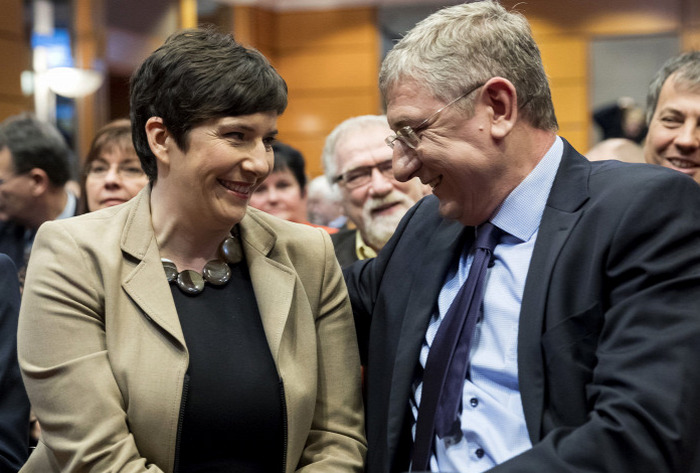Századvég has collected what austerity measures the left-liberal forces have introduced in the settlements they control over the past year and a half, who saved money, and what purposes they spent taxpayers' money on.
The socialist-liberal government introduced severe population restrictions in the years before 2010, and Ferenc Gyurcsány made Hungarian families, the elderly, and those living on wages and salaries pay the price for his faulty economic policy. Despite the fact that similar austerity policies have been observed in the capital districts and rural settlements led by the left since 2019, Gyurcsány and his allies are still preparing for the 2022 elections by campaigning with the slogans of "caring society" and "solidary, just Hungary". Századvég has collected what austerity measures the left-liberal forces have introduced in the settlements they control over the past year and a half, who saved money, and what purposes they spent taxpayers' money on.
I. What austerities have the left-wing city leaders introduced and who are they saving money on?
It can be concluded that a wide range of austerity measures are applied by left-liberal municipalities. The scale ranges from the introduction of new taxes and the increase of existing tax burdens to the reduction and withdrawal of local government subsidies and the dismissal of local employees. It is important to emphasize that even in the distressed economic situation caused by the coronavirus epidemic, the left wants to make the people pay the price of the crisis, as opposed to the bourgeois government's policy based on tax cuts.
A particularly popular tool of the left-liberal leaders is the increase of the building tax and land tax, which occurred in Vác, Józsefváros, Ferencváros, Újbuda and Kispest, while in Erzsébetváros only the amount of the building tax increased. In addition, the building tax in Gyöngyös, Szombathely and Salgótarján,
In Óbuda, the local left would also have raised the land tax, but due to the government's tax increase ban announced in December 2020, these efforts failed.
Since the building tax is levied on residential and non-residential buildings and parts of buildings, while the land tax is charged to the owner of the plot, these restrictions affect a wide range of local businesses and individuals. In Józsefváros, mayor András Pikó increased the communal tax levied on private homeowners to the maximum amount allowed by law, and in Eger, the tourist tax for citizens visiting the city and spending at least one night there increased by about ten percent. In Salgótarján and Gyöngyös, the latter tax - which also affects domestic tourists - would have been increased, but this did not happen due to the intervention of the government. It can therefore be seen that in several cities, despite the epidemic situation, the left-liberal side planned to increase public charges, which intentions were blocked by the government's decision in December 2020.
In several left-wing municipalities, local government workers were dismissed (Tatabánya, Dunaújváros, Capital City Municipality), their salaries were reduced (Vác, Siófok, Hódmezővásárhely), and other benefits were withdrawn (Miskolc, Józsefváros, Újbuda).
It is particularly worrisome that left-liberal decision-makers like to save money on kindergartens and nurseries. In some municipalities, the salaries and allowances of kindergarten teachers have been reduced (Ózd, Józsefváros, Újbuda), while kindergartens will cease to exist in Siófok in the near future.
In Pécs, the left-wing city administration also called for the closure of institutions after withdrawing HUF 210 million from kindergartens and nurseries in 2020.
Local communities, which play a significant role in the operation of the settlements and the lives of the people living there, are also not spared by left-wing resource withdrawals. In Tatabány and Ózd, local government support for local NGOs and sports associations was significantly reduced, in Eger the amount of city sports subsidies was reduced to zero, while in Pécs in 2020 the amount of support for the Kerek Világ Alapítvány, which cares for young people with disabilities, was halved by the left-liberal city fathers.
In addition to these, we can find examples of cutting the budgets of local theaters (Vác, Eger), ending housing support for young married people (Újpest), raising rents for municipal rental apartments (Miskolc), increasing annual parking fees (Ferencváros), and also for the needy elderly to withdraw the monetary benefit provided (Dunaújváros). It is also thought-provoking that the Metropolitan Municipality led by Gergely Karácsony is planning to introduce a "restart tax" on businesses, and is encouraging Budapest companies to pay the full business tax, ignoring the tax relief introduced by the government in view of the epidemic situation.
II. What do the left-wing municipalities spend the money on?
The left-liberal city leaders, in addition to the introduction of the population quotas, are much more generous in securing their own positions and in rewarding themselves and their allies.
Compared to the previous cycle, the number of deputy mayors increased in Vác, Pécs, Hódmezővásárhely, Budavár, Óbuda, Újpest, Erzsébetváros, Újbuda, Pestszentlőrinc, Budapest II. district, Terézváros, Angyalföld and Zugló. In Budapest, the number of deputy mayors initially increased by two compared to the previous cycle, and even after the resignation of Dávid Dorosz, there are one more deputy mayors than in the period from 2014 to 2019. The deputies of Gergely Karácsony earn HUF 200,000 more than the former deputies of István Tarlós.
In Nagykanizsa, the left-wing majority of the general assembly - after imposing a HUF 43 million burden on the city due to the immediate dismissal of some municipal company managers - rewarded themselves with the positions of councilors and committee presidents (and the accompanying higher honorarium). This year, the DK-led Erzsébetváros municipality hired the law office of Csaba Czeglédy, who was closely connected to Ferenc Gyurcsány and was previously convicted, for more than 46 million forints, and the mayor of Újbuda, also from the DK, Imre László, employed his party colleague as cabinet leader for a month and a half for 8 million forints. , Imrét Lakos.
In the light of all this, it can be stated that the left wing led by Gyurcsány, as in the period before 2010, still wants to secure its own positions of power by increasing the burdens on Hungarian people and businesses, pay off those belonging to its court, and compensate for the economic consequences of the crisis.
As a result, there can be no doubt that, if they come to power in 2022, the left-liberal forces would raise their current austerity policy of local governments to the national level.
Source: hirado.hu / Századvég
Cover image: Illustration / MTI/Balázs Mohai













